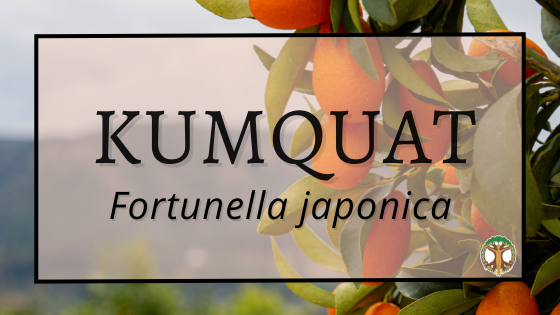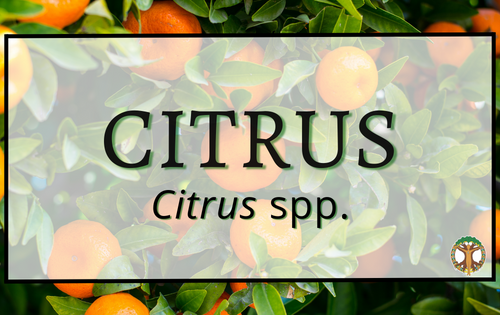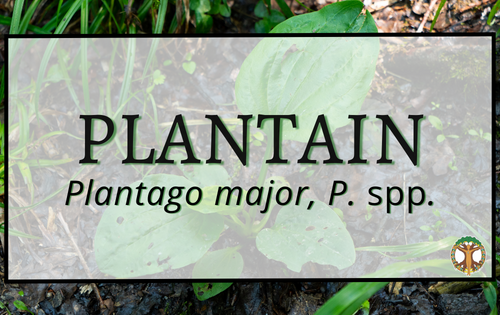
Kumquat
Latin Name: Fortunella spp. (F. japonica, F. crassifolia, F. marginata, F. obovata, F. poylandra, F. hindsii)
Common Names: kumquat
Family: Rutaceae
Habitat: Kumquats are native to SE China and tropical Malaysia and are grown throughout the subtropics around the world. They were introduced into Florida in 1855 and are grafted onto trifoliate orange rootstock. They have a small compact growth (8-15’ tall) and prefer full sun and hot humid climates and can tolerate freezes. They can be grown in a large pot due to their smaller size, and they can be pruned into a hedge shape if desired. The flowers are white, very fragrant and have 5 parts, and the leaves are simple, alternate and lanceolate in shape. Fruits resemble a small citrus but are much smaller in size and the whole fruit is edible.
Parts Used: fruit, leaves
History/Tradition: Originally in the Citrus genus, it was renamed as Fortunella as a reference to the Scottish botanist Robert Fortune who in the 1800’s made several trips to China and Japan and brought back with him many interesting plants, including kumquats. Kumquats have a long been used in Traditional Chinese medicine (TCM) to treat respiratory conditions like cough and sore throat.
Energetics: in TCM it is considered warming
Indications: For a sore throat you can make a kumquat syrup, or a decoction of kumquat fruits and add honey.
Systems: respiratory, digestive
Actions: antitussive, expectorant, anti-inflammatory, carminative, antioxidant
Constituents: vitamin C, essential oils in skin (like limonene, alpha-pinene and monoterpenes), calcium, vitamin A
Culinary Use: Fruit can be eaten whole, skin and all. The skin is sweet and matched with the tangy interior, makes for a delicious bite! Fruits have been used to make marmalade, as well as being canned, preserved whole in sugar syrup, dried, candied and sugared. They can also be cured in salt and even pickled.
References:
https://www.sciencedirect.com/science/article/abs/pii/S092422442300167X
https://www.visiontimes.com/2024/10/16/grow-medicinal-kumquat.html
http://www.stuartxchange.org/Kumquat
Written by Jaime Pawelek





